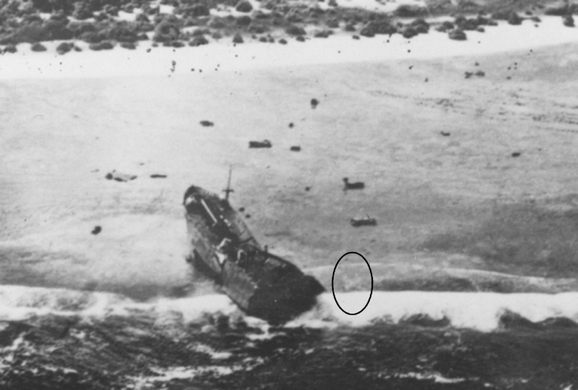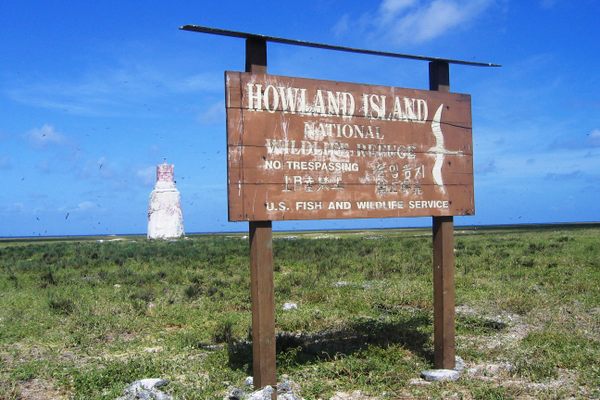On July 2, 1937, Amelia Earhart took off on what was to be her last flight. At 8:43 a.m she sent her last known transmission, “We are on the line 157 337. We will repeat this message. We will repeat this on 6210 kilocycles. Wait.”
Neither she nor her co-pilot Fred Noonan were ever seen again, and after a long search – the most costly and intensive in US history up to that time – on January 5, 1939, they were declared legally dead. Up to this day, no one has ever definitively located the site of their crash.
Formerly known as Gardner Island, Nikumaroro, part of the Phoenix Islands in the western Pacific Ocean, may, in fact, be the final resting place of the aviation pioneers Amelia Earhart and Fred Noonan.
For many years the prominent theory was that the plane ran out of gas and crashed into the ocean. As Thomas Crouch, the Senior Curator of the National Air and Space Museum put it, the Earhart/Noonan Electra is “18,000 ft. down.” However, recently a rival theory has emerged: that Amelia Earhart and Fred Noonan may have managed to crash-land their plane on Nikumaroro Island and may have survived there for as much as a few months after their disappearance in July.
Beginning in 1988 four expeditions have been sent to the island by The International Group for Historic Aircraft Recovery, or TIGHAR.
Among the items they discovered were “improvised tools, an aluminum panel (possibly from an Electra), an oddly cut piece of clear Plexiglas which is the exact thickness and curvature of an Electra window and a size 9 Cat’s Paw heel dating from the 1930s which resembles Earhart’s footwear in world flight photos.” Though it has yet to be definitively confirmed, the “Gardner hypothesis” has become the favorite of aviation historians.
Further confirming the possibility is a skeleton that was found in the 1940s and confirmed to be that of a tall woman. Unfortunately, the skeleton has since been lost.
The island was also the site of the 1929 wreck of the SS Norwich City and one of the islands involved in the 1939-63 Phoenix Island Settlement Scheme, unfortunately, known as PISS. It is part of the Republic of Kiribati, and as part of the Phoenix Islands Protected Area it has been inscribed by the U.N. as a World Heritage Site.
Nikumaroro (known to its friends as Niku) is a coral atoll about 4.5 miles long and 1.5 miles wide. Its reef supports a rich diversity of animal life, though it has experienced bleaching episodes in recent years.
The lagoon has only two inlets/outlets, so it tends to be rather murky; it is a nursery for sharks. Ashore, much of the island is covered with ferile coconuts and pandanus left over from the PISS colony. Cleared and shoreline areas are covered with scrub, mostly Scaevola frutescens and Tournefortia.
However, there is still a substantial amount of indigenous forest dominated by Pisonia grandis, a tree that grows to impressive heights. Fauna includes many seabird species, coconut crabs, strawberry hermit crabs, and rats.
Know Before You Go
Uninhabited. There is a landing channel, but no dock. Private charter boats from Fiji or American Samoa may be possible. Permission to land is required from the Kiribati government and PIPA.






















Follow us on Twitter to get the latest on the world's hidden wonders.
Like us on Facebook to get the latest on the world's hidden wonders.
Follow us on Twitter Like us on Facebook